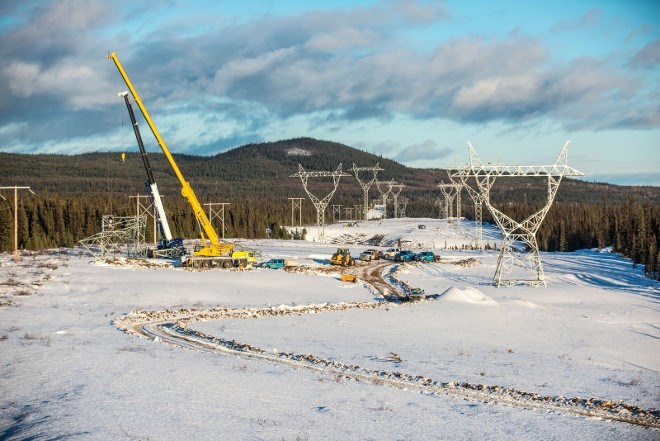The Ontario Energy Board (OEB) wants the two competing bidders for the East-West Tie to submit their all-in costs for the stalled regional transmission line project.
The Crown regulator of the province’s electricity and natural gas sector said it can’t render a decision on who’s going to get the job of building the 450-kilometre power corridor around the north shore of Lake Superior until it can look at the comparative costs.
The board issued a Dec.20 order giving NextBridge Infrastructure LP and Hydro One until Jan. 31, 2019 to submit a “not-to-exceed” project price before it will issue a decision.
The East-West Tie involves the construction of a double-circuit 230 kilovolt (kV) transmission line between Wawa and Thunder Bay. The line would roughly parallel the existing one.
Identified by Queen’s Park as a priority infrastructure project for years, the power corridor was originally slated to be in service by late 2020.
The Tie is of critical importance to the northwest, to ensure greater reliability of power supply and support future industrial development, particularly in mining.
Back in 2013, the province selected Upper Canada Transmission, operating as NextBridge Infrastructure LP, to do the design and engineering work.
But the government didn't grant approval to the construction consortium to start construction.
When project cost estimates began to balloon past $700 million in 2017, then-Energy Minister Glenn Thibeault allowed Hydro One to submit a bid proposal. The matter was referred to the OEB to make a ruling.
After holding hearings in October, the board was supposed to select one of the two applicants by the end of 2018, and give approval to start construction.
“The OEB is not prepared to grant leave to an applicant at this stage in the proceeding,” said the Dec.20 directive to all parties.
Despite pressure from regional leaders and cabinet minister Greg Rickford to move expeditiously, the OEB has given itself an extension to consider the two applications, which vary in community support, routing, in-service date, and environmental approvals, among other factors.
The OEB said Hydro One has submitted a not-to-exceed price, with a cost escalator related to environmental approvals. NextBridge has chosen not to submit a final cost estimate.
A not-to-exceed price, the board said, would provide a “level-playing field” to compare the two applications and mitigate taxpayer risk.
The OEB said the price filing from each bidder is the “final step” before they grant leave to construct the power line. A date as to when a final decision could be delivered was not provided.
That explanation, and the delay in the decision, drew criticism with Common Voice Northwest, a regional policy public think-tank.
“Early on in the process they could have directed the two applicants to provide the Not-To-Exceed pricing as a condition of continuing the review rather than now giving them little over a month to provide it,” said Iain Angus, co-chair of the group’s energy task, in an emailed statement.
“We are also disappointed, but not surprised, that OEB delayed the in-service date to December 31, 2021. It was clear that because of the last minute application by Hydro One Networks forcing a delay in the awarding of the leave to construct that a delay in construction was inevitable.
“We can only hope that the OEB makes a swift decision once the January 31, 2019 deadline for submitting the new financial data has passed. It is important for this region that the project gets underway as soon as possible.”
Hydro One welcomed the news that the OEB adopted the not-to-exceed stipulation that was in their proposal.
"Hydro One continues to advocate for customers and is proud to have introduced a lower bid in this competitive process including a not-to-exceed price," said Hydro One COO Greg Kiraly in a Dec. 20 news release.
"The future of economic development is bright for northern Ontario and we are committed to delivering this project along with the Northwest Transmission Line to ensure that electricity is available to support a thriving Northern Ontario economy."




